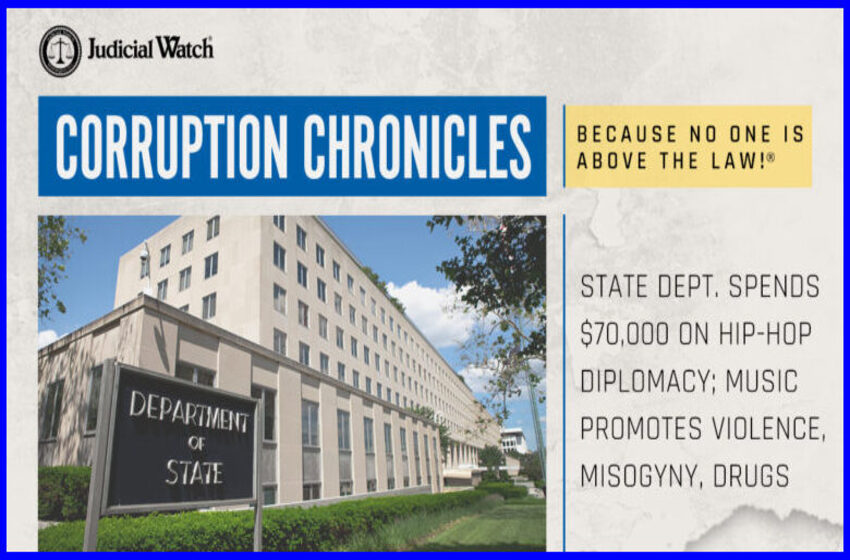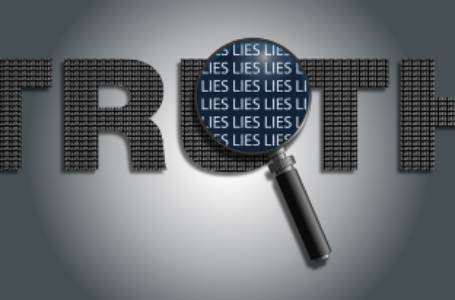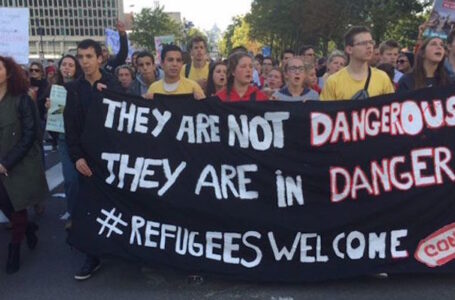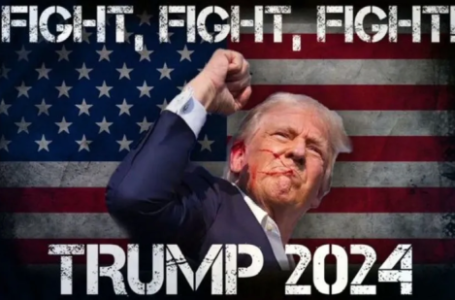State Dept. Spends $70,000 on Hip-Hop Diplomacy; Music Promotes Violence, Misogyny, Drugs

In a curious move, the U.S. government is investing tens of thousands of dollars to promote American culture abroad by using music famous for glamorizing violence, misogyny, drugs and lawlessness. The project is called Bridging Cultures Through Hip-Hop and it aims to “explore the commonalities and differences between India and the United States through this influential music genre,” according to the State Department, which plans to spend $70,000 on the absurd endeavor.
In its announcement the agency omits the dark side of Hip-hop, a predominantly African-American brand well known for graphic lyrics involving urban violence and the abuse of women. Instead, the State Department celebrates Hip-hop musicians for using “their art to highlight socio-political problems, particularly pertaining to youth in underserved and other minority communities.” Hip-hop will serve as a valuable tool to show the vibrancy and innovative creativity of U.S. society, according to the State Department, because it exemplifies free expression that promotes values such as pluralism, tolerance and inclusion. With roots in New York, Hip-hop has become so popular that it has “ascended to a global art form,” the government asserts.
The U.S. also claims that this type of music helps increase a sense of connection by building linkages across communities that normally do not interact. “The goal is to engage citizens and artists in social action through music productions that highlight the achievements of the arts in America, promote respect for cultural diversity and understanding, and emphasize the role of music as a form of free expression and tool to promote tolerance and inclusion in democracy,” the State Department grant announcement reads. It further reveals that “Hip-hop culture” is becoming increasingly popular in India and it is difficult to miss the influences from the American Hip-hop scene. The target audience of this bizarre venture is “underserved populations and youth in minority communities.” The plan is for Hip-hop artists from the U.S. to travel to India on American taxpayer dime to perform in cultural festivals and workshops. The State Department expects that the U.S. artists will help address the role of Hip-hop music in “cultural diplomacy.”
It is not clear which artists will be selected, but it is important to note that Hip-hop lyrics don’t exactly deliver messages that shed the most positive light on American culture. Songs often include profanity, offensive descriptions of women, gun violence and some encourage defying or attacking police. Among the most famous hits are tunes that brag about street warfare, promiscuity and the use of illicit drugs. Others incite hatred or violence. Some of the most famous Hip-hop artists in the U.S. have made headlines for domestic violence and sexual assault, offenses that seem to be widely accepted in the industry. One renowned singer, known as XXXTentacion, was charged with aggravated battery and false imprisonment against his pregnant girlfriend. Another artist, known as Fabulous, was slapped with multiple felony domestic violence charges after punching his longtime girlfriend in the face and knocking out two of her teeth. Other Hip-hop stars have been embroiled in serious criminal behavior involving guns and drugs. One highly popular singer, known as Tekashi69, was recently convicted of nine federal crimes, including racketeering and drug charges. A popular online news website proclaims in a story that Hip-hop rewards rappers for abusing women.
Considering pop culture is immensely influential among certain demographics, especially young people, Hip-hop has not surprisingly had a detrimental impact. One academic study, focusing on the connection between music, substance abuse and aggression determined that people who listen to Hip-hop are more likely to abuse alcohol and commit violent acts. “The findings suggest that young people’s substance use and aggressive behaviors may be related to their frequent exposure to music containing references to substance use and violence,” researchers write in their report. A separate analysis published by a New York-based think tank points out that not all Hip-hop is belligerent or profane. However, “it’s the nastiest rap that sells the best, and the nastiest cuts that make a career.” The review includes excerpts of lyrics from famous Hip-hop songs that most Americans will likely find incredibly offensive.
This brings us back to the baffling move by the government to use this type of highly controversial music for overseas diplomacy. Do officials at the State Department really think that Hip-hop is the best type of American art to “promote respect for cultural diversity?” Remember that the agency also claims that Hip-hop represents “free expression” and furthers “tolerance and inclusion in a democratic set up.” Many of the American taxpayers funding this outrageous program may disagree.















